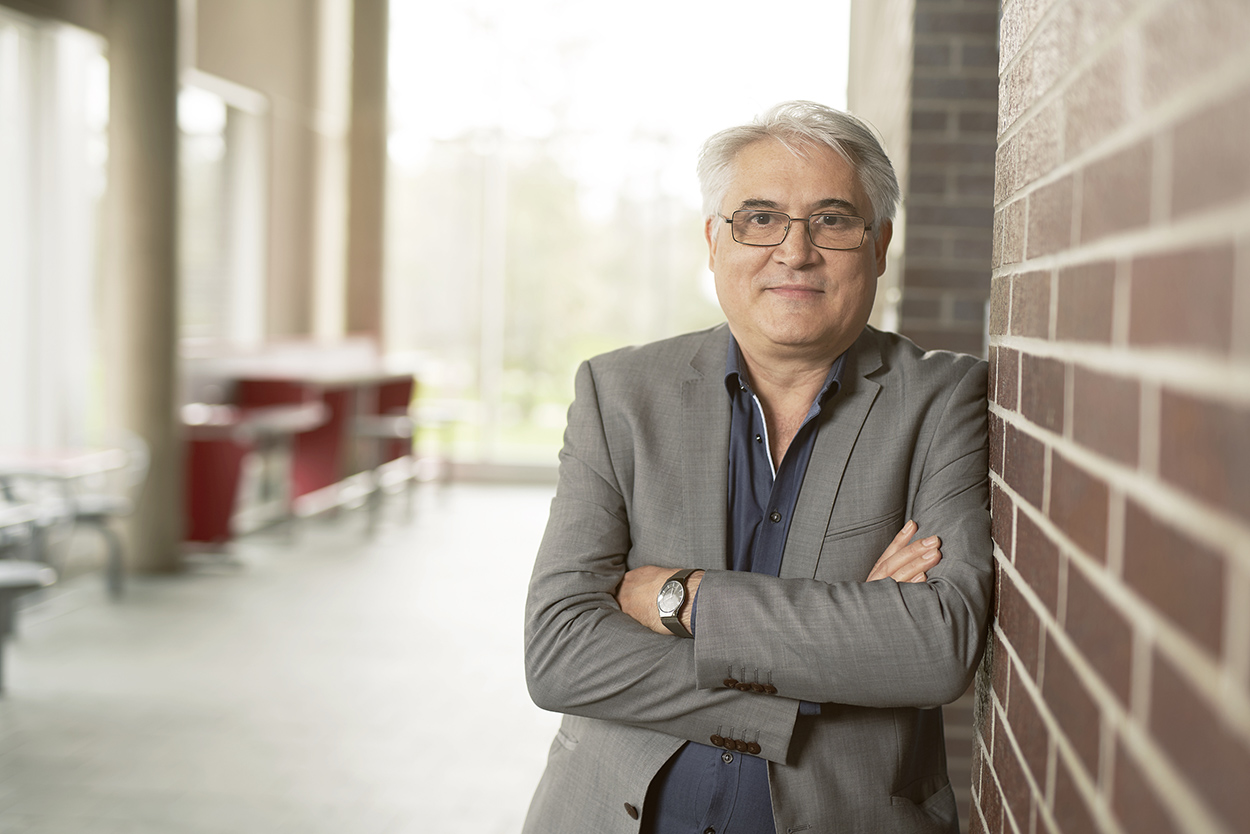An academic trifecta of physics, business technology, and theology to help technology startups succeed
Stoyan Tanev is changing the landscape of how technology startups articulate their product value and compete in the international market. His research program is multifaceted, combining his science, engineering, business—and theology acumen!
Tanev is quadrilingual and multidisciplinary, with a unique narrative for higher learning. His love of learning began in Sofia, Bulgaria, his birthplace, where he earned his master’s degree and PhD in Physics. He started his academic career as Assistant Professor of Physics in the Technical University of Sofia, specializing in non-linear optical wave phenomena. He then pursued a post-doctoral fellowship and subsequently worked in the optical communications industry for local start-up companies, designing simulation software for photonics devices. Although a highly skilled physicist, Tanev, ever curious, wanted to learn more about the businessside of the companies he worked for; how new ideas were transformed and realized as a new business, and he wanted to understand what really determined the value of a product for customers. He returned to academia, earning his Master of Engineering in Technology Innovation Management from Carleton University. In 2009, an opportunity presented itself far from home, and he accepted a faculty position at the University of Southern Denmark in the Department of Technology and Innovation, while concurrently maintaining an adjunct position at Carleton—first, in the Department of Systems and Computer Engineering and later, in the Sprott School of Business.

His research looks at value proposition development and business modeling relating to technology-based start-up companies. A standard business approach is to start local, then internationalize the business once growth has been established. Tanev began to connect early internationalization and the Born Global firm model with the lean start-up approach and the emerging concept called Lean Global Start-up was, well, born. Tanev’s research looks at how to reshape the business model for technology-driven businesses that globalized in the first three years of inception. His earlier work in Denmark emphasized the need to identify two patterns of start-up emergence—lean-to-global and lean-and-global.
Transnational technology entrepreneurship is a rapidly growing field and it is vital that new businesses know how to operate in multiple countries and a global competitive environment. Tanev’s collaborative research showed that both types of start-ups were found to have faced significant challenges with the complexity, uncertainties, and risks of being innovative on a global scale. His first conference publication, focusing on lean global startups, was nominated for a Best Paper award at the International Society for Professional Innovation Management Conference (2014) and subsequently invited for publication in the International Journal of Innovation Management. The paper was identified as one of the keyworks published in this journal and was included in a book that will appear in Managing Innovation – Internationalization of Innovation Series on Technology Management.

Tanev’s research program looks at how startups can become global from the beginning and how they can optimize their value propositions – to determine a better way to articulate the value of their products in a way that will resonate with customers. His research program includes exploratory research combined with topic modelling—algorithms that analyze text in documents and find emerging topics and themes that are relevant. What is exciting about this approach is that it can be applied to the information provided on company websites and appears to be highly effective at helping companies visualize, holistically, their competitors, a map of what is being offered in their business domain and, most importantly, how to differentiate from other businesses—or even how to partner with them. By using this approach, a company can learn how to articulate their products and position themselves to set them apart from their competitors. Tanev and his team have published their preliminary findings and received the Best Paper award at the International Conference of the Association of Global Management Studies in 2018.
Clearly an academic powerhouse, Tanev has also earned his MA and his PhD in Theology, which he did concurrent to his work in industry, and his continual publications and contributions to academia. Tanev’s interest is in the interface between science and theology and has both existential and academic dimensions that truly substantiate the methodological stance of his work as a scholar.
What makes Tanev’s research program so robust is his ability to integrate all the areas of his academic expertise and find connections, and this new area of research is no exception. He sees the growing importance of using language effectively to articulate customer value and believes that innovation includes not merely the adoption, but the invention of the proper language of speaking about the intangible dimensions of value and user experience. His research explores the linguistic aspects of entrepreneurship and innovation management by emphasizing that they are both dependent on effective conversational skills and the specific language used by the companies to articulate value to customers. This approach appears to be highly valuable as most companies, especially start-ups, struggle to articulate their value propositions in a clear, competitive, and viable way. It is about making start-ups more successful using text analytics and machine-learning tools as part of webcontent analysis, combined with a linguistic approach as the best way to profile a company. Tanev considers customers as co-creators of products, and to attract customers you need to send the right message. “Communication is not easy, especially in language,” and he sees the movement of his research program delve deeper into areas that would link the conversational aspects of entrepreneurship and his epistemological insights from theology, with helping technology-driven businesses succeed.